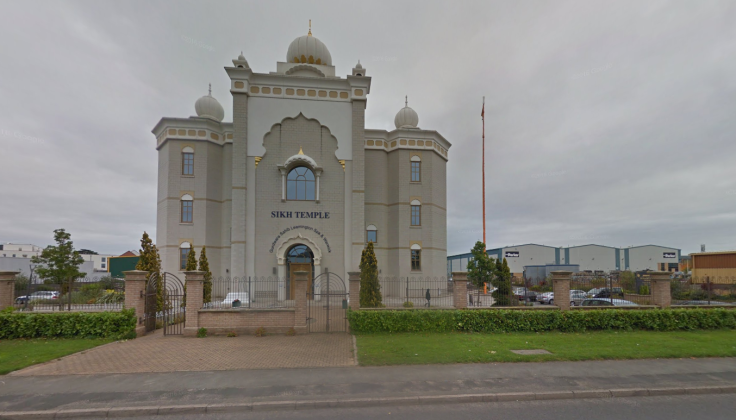There is a rising trend of radicalism and intolerance from a younger generation of Sikhs
They are opposing inter-faith marriages because they fear elders have compromised religious values.

The headlines about a huge sword-wielding gang of masked men storming a Sikh temple may have proven to be somewhat exaggerated, but there is no doubt that the image of Sikhs in Britain has suffered from the protest against an inter-faith marriage at Leamington Gurdwara on Sunday morning (11 September).
While mobile phone footage from within the temple shows the 'intruders' were actually sitting down peacefully and praying — and police later admitted the 55 men they arrested were lawfully carrying ceremonial daggers — the incident still exposes a rising trend of radicalism and intolerance among certain sections of the Sikh community.
Similar protests have taken place several times in the last few years, in Gurdwaras across Britain, usually under the radar of the media. They were given impetus by a set of guidelines issued in 2014 by the Sikh Council (UK), insisting only Sikhs can take part in the religious rites of Anand Karaj (marriage ceremony) in a Gurdwara.
But some Gurdwaras choose to ignore the advice, and have sometimes been met by mobs bussed in from other cities intent on causing a scene and stopping a marriage involving a non-Sikh.
There is no need to doubt the honourable intentions of the protesters, who say they are acting to preserve the sanctity of Anand Karaj, but their actions are misguided. They are, in my opinion, doing more harm than good to the wider Sikh cause.
Put bluntly, Sikhs do not have a PR problem — and there is no point in creating one. The diaspora population is hugely admired for its willingness to integrate and contribute — whether it be in the UK, US or Canada — while maintaining its distinct identity.
It is an identity that has been infused, right back from its origins in the 15<sup>th century, with a strong strain of tolerance and humanity. Both the first and last of the ten founding Gurus of Sikhism, Guru Nanak Dev Ji and Guru Gobind Singh Ji, taught their followers to ignore distinctions between religions and to recognise the human race as one.
Britain's Sikh community has largely adhered to this pluralistic spirit over the last few decades. But in recent years it has been challenged internally by elements from a younger generation who fear their elders have violated fundamental religious values and compromised their identity through their keenness to fit into this country's national life.

This hardline attitude has coalesced around several issues, including opposition to inter-faith marriages being conducted in a Gurdwara — hence the protests. But like many youth-inspired rebellions, it seems to be based more on giving its adherents a sense of belonging and purpose rather than on any coherent and consistent set of principles.
Take, for example, the guidelines from the Sikh Council (UK) advising Gurdwaras not to hold inter-faith marriages. The edict makes clear reference to the Rehat Maryada, the official code of conduct for Sikhs that was written and approved in India in the 1930s and 1940s, more than two centuries after the death of the tenth and final Guru.
When stipulating that only those of the faith can be married by Anand Karaj, it defines 'a Sikh' by a specific set of religious convictions including belief in 'the baptism bequeathed by the tenth Guru'.
Well, under that definition hardly any marriage ceremonies should take place in UK Gurdwaras. In this country, as around the world, only a small minority of Sikhs have made the serious commitment of becoming baptised into the Khalsa.
The rest, like myself, would describe themselves as Sikh more as a marker of inherited cultural identity than profound religious conviction. So, by this definition, we should also be excluded from taking part in an Anand Karaj in a Gurdwara.
And what do the protesters make of the many Sikh grooms who grow a beard and wear a turban for their Gurdwara ceremony in the morning, before shaving off the facial hair and removing the turban for the boozy wedding reception in the afternoon?
Surely they, who pay only token acknowledgement of the Anand Karaj's beautiful description of the human soul's journey towards God, should also be prevented from tarring the sacred ceremony?
Any rigorous adoption of the stated principles would ban all such marriages, leaving the Anand Karaj in its purest form as a union between two baptised and truly committed Sikhs.
But by only targeting those of non-Sikh heritage — whether they be Hindu, Muslim, Christian or whatever — the protesters come across as discriminatory and narrow-minded. More pertinently, they contradict the egalitarian values of the Gurus whose faith and philosophy they profess to protect.
© Copyright IBTimes 2024. All rights reserved.






